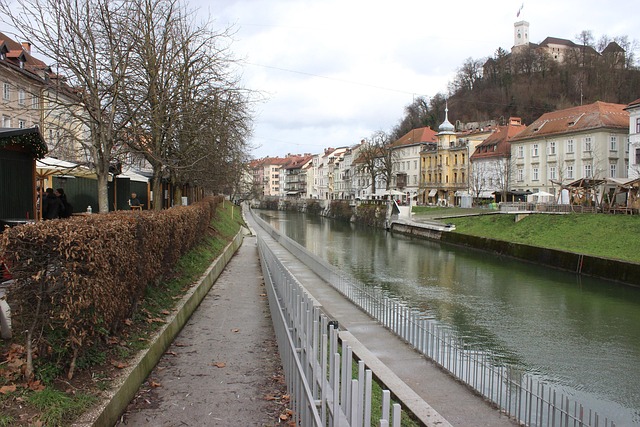Karachi, Pakistan's economic hub, faces severe waste management issues due to urbanization and industrialization. The Karachi Development Authority (KDA) launched KDA Scheme 1 to revolutionize solid waste management with a focus on mitigating environmental degradation, enhancing public health, and creating a cleaner urban environment. This initiative employs advanced technologies and eco-friendly methods for efficient waste collection, recycling, and source segregation, reducing landfill use. The scheme has already led to cleaner streets, better air quality, and positive impacts on local biodiversity in Karachi, offering a promising model for sustainable waste management that could be replicated across Pakistan.
Karachi, Pakistan’s economic hub, faces significant challenges in waste management due to rapid urbanization. In response, the Karachi Development Authority (KDA) has initiated Scheme 1, a comprehensive strategy to transform solid waste management. This article explores KDA Scheme 1, delving into its objectives, key components, and benefits for Karachi’s ecosystem. We also analyze challenges, future prospects, and community engagement efforts, highlighting the scheme’s potential as a game-changer in sustainable urban development for the bustling metropolis of Karachi.
- Understanding Karachi's Waste Management Scenario
- Introduction to KDA Scheme 1: Objectives and Reach
- Key Components of the Waste Management Plan
- Benefits and Impact on the City's Ecosystem
- Challenges, Future Prospects, and Community Engagement
Understanding Karachi's Waste Management Scenario

Karachi, as Pakistan’s economic hub and one of the most populous cities in the country, faces significant challenges when it comes to waste management. The rapid urbanization and industrialization have led to a surge in solid waste generation, creating an urgent need for efficient disposal and recycling solutions. Navigating Karachi’s waste management scenario requires understanding the unique dynamics of this bustling metropolis.
The city’s diverse population and varied economic activities contribute to a complex mix of waste types, including domestic, commercial, and industrial waste. Traditional dumping sites have long been overwhelmed, leading to environmental concerns and public health hazards. In light of these challenges, the Karachi Waste Management Scheme 1 (KDA Scheme 1) has emerged as a crucial initiative to transform the city’s waste management landscape.
Introduction to KDA Scheme 1: Objectives and Reach

Karachi, as Pakistan’s financial hub, faces significant challenges in waste management due to its dense population and rapid urbanization. To address this critical issue, the Karachi Development Authority (KDA) has initiated Scheme 1, a comprehensive plan aimed at transforming solid waste management practices. The primary objectives of KDA Scheme 1 include reducing the environmental impact of waste disposal, improving public health, and creating a cleaner, more sustainable cityscape for residents.
This scheme targets various sectors within Karachi, from residential areas to commercial hubs, focusing on collecting, transporting, and processing waste efficiently. By implementing advanced technologies and promoting eco-friendly practices, Scheme 1 strives to reach its goals of minimizing landfill use, encouraging recycling, and fostering a culture of responsible waste management among Karachians.
Key Components of the Waste Management Plan

Karachi, as Pakistan’s economic hub, faces unique challenges in waste management. The city’s bustling streets and ever-growing population generate substantial amounts of solid and hazardous waste daily. A comprehensive Waste Management Plan is essential to mitigate environmental risks and ensure a healthier, more sustainable future for its residents.
The key components of this plan include source segregation, collection systems, recycling facilities, and efficient disposal methods. By promoting responsible waste generation at the source, implementing robust collection networks, and establishing modern recycling centers, Karachi can significantly reduce landfill reliance. These measures not only minimize environmental pollution but also create opportunities for resource recovery, contributing to a more circular economy in the city.
Benefits and Impact on the City's Ecosystem

The Waste Management KDA Scheme 1 in Karachi has brought about significant positive changes for the city’s ecosystem. By implementing efficient waste collection and recycling practices, the scheme has reduced the environmental footprint of solid waste disposal. This initiative has led to cleaner streets, improved air quality, and a healthier urban environment for residents. The systematic management of waste, including segregation at source, enables better resource recovery, minimizing the need for landfilling and reducing greenhouse gas emissions.
Moreover, this program fosters a circular economy by promoting the reuse and recycling of materials, such as plastic, paper, and glass. It encourages responsible consumer behavior and raises awareness about sustainable practices among Karachi’s citizens. The positive impact extends to local biodiversity, as reduced pollution and proper waste management contribute to preserving the city’s natural habitats and supporting diverse flora and fauna. Karachi’s ecosystem benefits from this scheme, moving towards a greener and more sustainable future.
Challenges, Future Prospects, and Community Engagement

In the context of Karachi, Pakistan’s most populous city, waste management presents a multifaceted challenge. The rapid urban expansion has outpaced the city’s infrastructure, leading to overburdened landfills and unhygienic streets. Additionally, the lack of efficient recycling mechanisms contributes to significant environmental degradation. However, the introduction of the KDA Scheme 1 offers a glimmer of hope. This initiative focuses on sustainable waste disposal methods, encouraging segregation at source and promoting recycling to reduce landfill waste.
Looking ahead, the future prospects for Karachi’s waste management are promising. With continued community engagement and awareness campaigns, there is potential to create a circular economy model that minimizes waste generation and maximizes resource recovery. By involving residents in the process, the city can foster a culture of responsible waste disposal, ensuring a cleaner and healthier environment for current and future generations. Community participation, coupled with technological advancements, could revolutionize waste management in Karachi, setting an example for other urban centers across Pakistan.
Karachi’s journey towards efficient waste management through KDA Scheme 1 showcases a comprehensive approach to tackling urban challenges. By focusing on sustainable practices, community involvement, and modern technology, this initiative promises significant environmental benefits for the city. While implementation faces obstacles, ongoing efforts to engage citizens and improve recycling infrastructure offer hope for a cleaner, greener future for Karachi. This successful waste management model can serve as a blueprint for other urban centers, demonstrating that effective change is achievable through strategic planning and community collaboration.

Leave a Reply